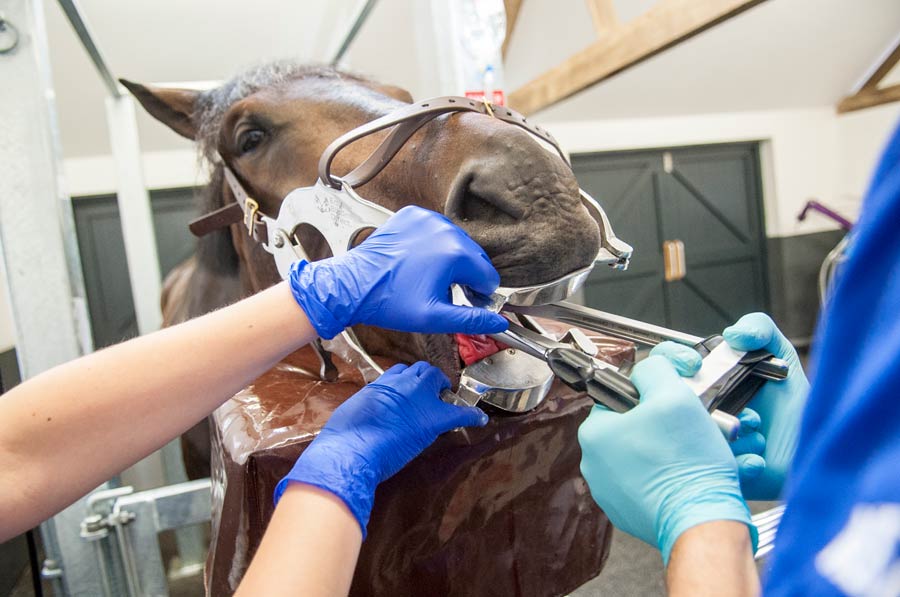Understanding the intricate relationship between horse teeth and bit comfort is essential for providing optimal care to these majestic animals. A horse’s mouth is a sensitive area, and the bit plays a crucial role in communication between horse and rider. Therefore, ensuring the comfort of the horse in its mouth can greatly enhance its performance and well-being.

The Importance of Equine Dental Health
Proper dental care is vital for horses. Just like humans, horses can suffer from a variety of dental issues that, if left untreated, can lead to discomfort and health problems. Regular dental check-ups are necessary to ensure that the horse’s teeth are in good condition, which is crucial for bit comfort. According to dental work on Pro Horse World, horses require consistent dental attention to maintain optimal health.
Understanding Horse Teeth Anatomy
Horses have a unique dental anatomy that includes incisors, premolars, and molars. These teeth are continuously growing, which means they require regular filing to prevent sharp edges that can cause pain. For more detailed insight into horse tooth problems, Pro Horse World provides an informative article on tooth problems.
Common Dental Issues in Horses
Some common dental problems include sharp enamel points, hooks, ramps, and wave mouth. These issues can interfere with the horse’s ability to chew properly and can cause discomfort when a bit is used. Regular dental check-ups can help in identifying and addressing these issues early.
The Role of the Bit in Horse Comfort
The bit is a crucial tool in riding, but its impact on the horse’s comfort cannot be overstated. An ill-fitting bit can cause pain and stress, leading to behavioral issues. Selecting the appropriate bit involves considering the horse’s dental structure and any existing dental issues.
Choosing the Right Bit for Your Horse
When selecting a bit, it is important to consider the horse’s mouth size and shape, as well as any dental conditions that might affect bit fit. A bit that is too small or too large can cause discomfort. The PNAS provides insights into the evolution of horse bits and their impact on horse health.
Signs of Bit Discomfort
Recognizing signs of discomfort can help in adjusting the bit or seeking alternative solutions. Common signs include head tossing, resistance to bridling, and excessive salivation. Observing these signs early can prevent further complications.
Improving Bit Comfort
To enhance bit comfort, ensure that the bit fits correctly and is suitable for the horse’s mouth anatomy. Regularly checking the bit for wear and tear can also prevent discomfort. Additionally, consulting with an equine dentist or veterinarian can provide valuable guidance.
Integrating Dental Care with Bit Selection
Integrating regular dental care with thoughtful bit selection can create a harmonious riding experience. This approach not only ensures the horse’s comfort but also enhances communication between rider and horse.
The Impact of Dental Health on Bit Fit
A horse’s dental health directly impacts how a bit fits and functions. Misaligned teeth can alter the way a bit sits in the mouth, potentially causing pain. Regular dental assessments help in aligning dental health with bit selection.
Preventative Measures for Optimal Health
Taking proactive steps in dental care and bit selection can prevent issues before they arise. Regular dental exams and choosing the right bit can significantly improve a horse’s quality of life.
Working with Professionals
Collaborating with equine professionals such as dentists and trainers can ensure that your horse receives the best care. Professionals can offer personalized advice based on the specific needs of your horse.

Conclusion
Ensuring horse teeth are well-maintained and selecting the appropriate bit are fundamental aspects of equestrian care. By prioritizing these elements, horse owners can enhance the well-being and performance of their horses. For further guidance, the dental chart on Pro Horse World is a valuable resource.
FAQ
- How often should a horse’s teeth be checked? – Horses should receive dental check-ups at least once a year, but more frequent visits may be necessary depending on age and dental health.
- What are signs of dental discomfort in horses? – Signs include difficulty eating, weight loss, bad breath, and head shaking.
- Can a bit cause permanent damage? – If not addressed, an ill-fitting bit can cause long-term dental and health issues. It’s important to ensure proper fit and regular dental care.
This article contains affiliate links. We may earn a commission at no extra cost to you.
